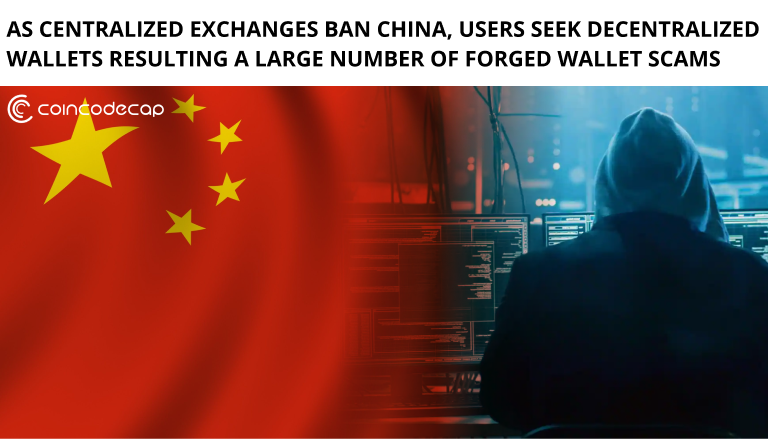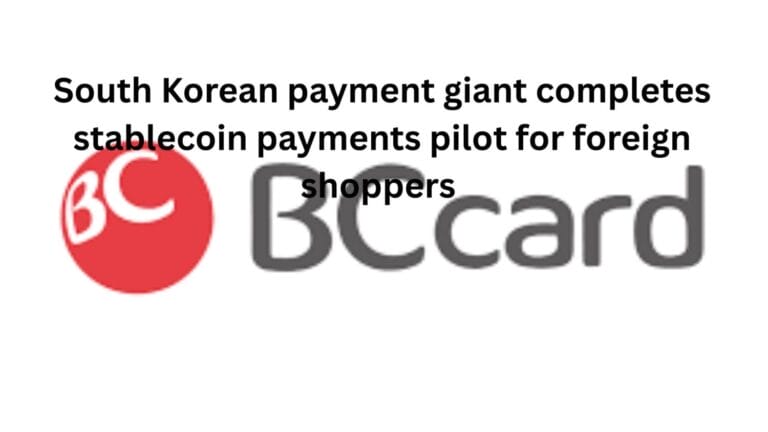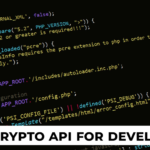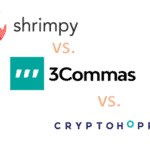Key Takeaways:
- The number of forged wallet scams increases as centralized exchanges ban China. In addition, as the popularity of DEX platforms has grown, so has the number of DEX scams.
- Many Chinese investors lost money due to scammers forging faux Metamask wallets.

The Chinese government’s long-standing anti-cryptocurrency stance, which dates back to 2013. In December, the People’s Bank of China, the Ministry of Information, and other financial watchdogs issued a combined notice prohibiting banks from conducting bitcoin-related transactions.
In 2017, Chinese regulators outlawed initial coin offerings (ICOs), a popular — and controversial — method of soliciting funds using cryptocurrency. The price of Bitcoin dropped by 6% due to the prohibition.
Two years later, in April 2019, China’s National Development and Reform Commission (NDRC) labeled bitcoin mining as an “undesirable” industry that should be limited or phased out.
China’s central bank declared all cryptocurrency transactions illegal on September 24, 2021, thus outlawing digital tokens.
“Virtual currency-related commercial activities are illegal financial activities,” the People’s Bank of China said, adding that it “threatens the protection of people’s assets.”
In addition, as a result of several significant mining operations closing or relocating outside of China, China has lost its position as the world’s largest Bitcoin miner.
China does not recognize cryptocurrencies as legal tender and has a rigorous anti-cryptocurrency stance. All Chinese financial institutions have been advised against dealing with such payment processors because Bitcoin can be used to avoid government-imposed capital controls and encourage capital flight. Chinese citizens’ acquisition of foreign money is limited to $50,000 per year. However, according to a report by Chainalysis, a crypto forensics firm, more than $50 billion moved from China-based Bitcoin wallets to wallets in other countries in 2020. This indicates that Chinese citizens may have converted local currency to Bitcoin and transferred it across borders to avoid government regulation.
As DEX platforms have grown in prominence, so have the number of scams related to them.
A DeX, or decentralized cryptocurrency exchange, is a computer application that connects two persons who want to trade cryptocurrencies. Unlike a centralized cryptocurrency exchange (CeX), which offers liquidity and requires extensive KYC (Know Your Customer) procedures, DeX users provide liquidity and can utilize the platform anonymously.
Since centralized exchanges do not allow Chinese customers, some users look for decentralized wallets. As a result, according to @WuBlockchain, many scammers manufactured fraudulent metamask wallets for fraud, resulting in losses for many Chinese investors.
A MetaMask wallet is a browser add-on that acts as a “hot” cryptocurrency wallet. It’s one of the most popular cryptocurrency wallets, and it’s used to store coins built on the Ethereum blockchain (ERC-20)
In May, Chinese state institutions warned that buyers would face no protection if they continued to sell Bitcoin and other cryptocurrencies on the internet, as government authorities promised to ratchet up the pressure on the business.









